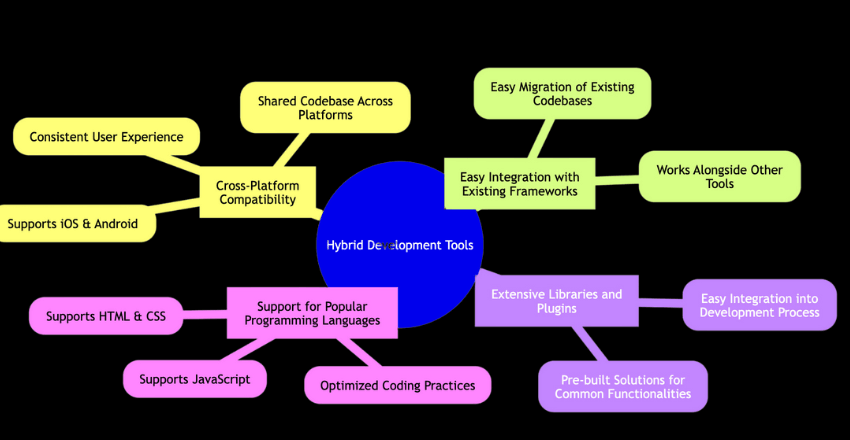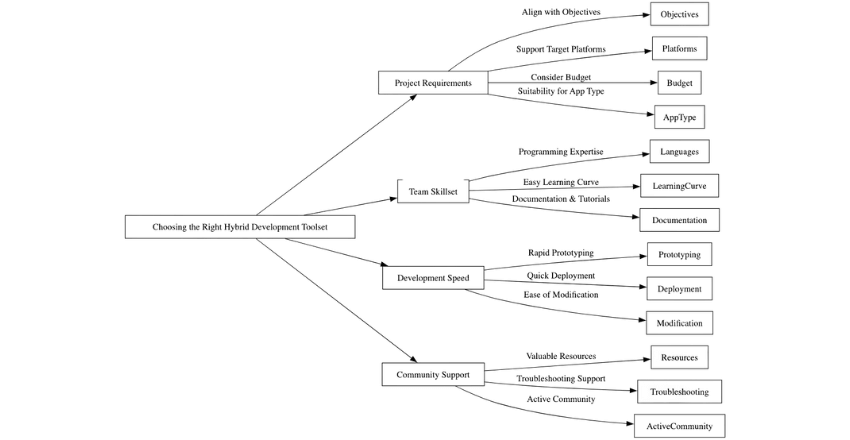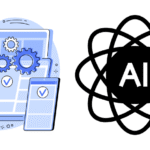 Hybrid Development Tools – Optimize your app creation with top-tier hybrid development tools. Experience enhanced productivity, platform agility, and user engagement through innovative, flexible, and robust development solutions.
Hybrid Development Tools – Optimize your app creation with top-tier hybrid development tools. Experience enhanced productivity, platform agility, and user engagement through innovative, flexible, and robust development solutions.
Hybrid development has become increasingly popular in the mobile app development industry, and with good reason. By combining elements of both native and web app development, hybrid development offers cost-effectiveness, time-efficiency, and code reusability.
However, assembling an efficient hybrid development team requires the right toolset and resources.
Key Takeaways
- Hybrid development tools are essential for assembling efficient development teams
- The right hybrid development toolset should possess cross-platform compatibility, easy integration with existing frameworks, extensive libraries and plugins, and support for popular programming languages
- Efficient coding solutions such as code optimization, modular architecture, automated testing, and continuous integration can enhance the efficiency of hybrid development
The Need for Hybrid Development Tools
In today’s fast-paced world of mobile app development, efficient coding solutions are a must. With the rise of hybrid app development, businesses are increasingly turning to hybrid development tools to create cost-effective and time-efficient solutions.
Hybrid development tools allow developers to write code once and deploy it across multiple platforms, eliminating the need for multiple development teams. This approach not only saves time but also reduces development costs and ensures code reusability.
Moreover, hybrid development tools provide extensive libraries and plugins, making it easier for developers to create feature-rich mobile apps. They also offer cross-platform compatibility, meaning that the same code can be used on different devices and software platforms.
Therefore, the importance of hybrid development tools in assembling efficient development teams cannot be overstated. By using these tools, businesses can reduce development time, save costs, and ensure their apps reach a wider user base with ease.
Key Features of Hybrid Development Tools

Hybrid development tools are gaining popularity due to their ability to streamline the development process and provide efficient coding solutions. Here are some key features that are important for any successful hybrid development toolset:
Cross-Platform Compatibility
Hybrid development tools should have the ability to support multiple platforms such as iOS and Android. This feature ensures that the codebase can be shared across multiple platforms, saving development time, and resources. Additionally, it helps ensure consistency in the user experience across different platforms and operating systems.
Easy Integration with Existing Frameworks
Hybrid development tools should have the ability to integrate seamlessly with existing frameworks, allowing for easy migration of existing codebases. This feature helps reduce the time and effort required for development and ensures that the hybrid toolset can easily work alongside other tools used in the development process.
Extensive Libraries and Plugins
An extensive library of plugins and modules is essential for hybrid development tools. These libraries offer pre-built solutions that can save development time and provide efficient coding solutions for common functionalities such as authentication, push notifications, and media playback. Additionally, libraries and plugins can be easily integrated into the hybrid app development process, making it easier to manage and update the codebase.
Support for Popular Programming Languages
Hybrid development tools should support popular programming languages such as JavaScript, HTML, and CSS, ensuring that developers can use the programming language they are most comfortable with. This feature also ensures that development teams can optimize coding practices and follow best practices for efficient coding solutions.
Choosing the Right Hybrid Development Toolset

Choosing the right toolset for hybrid app development is crucial for assembling an efficient development team. With so many available options in the market, the selection process can be overwhelming. However, by considering certain factors, businesses can make an informed decision about the most suitable toolset for their team.
Project Requirements
The first factor to consider is the project requirements. The toolset should align with the project’s objectives, target platforms, and budget. Some frameworks may be more suitable for certain types of applications, such as gaming, e-commerce, or social media. Therefore, it is essential to assess the project’s needs and limitations before choosing a toolset.
Team Skillset
Another important factor is the team’s skillset. The toolset should cater to the team’s expertise in programming languages such as HTML, CSS, and JavaScript. It should also provide an easy learning curve for team members who are new to hybrid app development. Some toolsets come with extensive documentation and tutorials, making them more beginner-friendly.
Development Speed
Development speed is a crucial consideration for businesses looking to release their app quickly. Some toolsets offer features that allow for rapid prototyping, quick deployment, and easy modification. These features can help speed up the development process and reduce the time to market.
Community Support
Community support is also a crucial factor to consider. Toolsets with a large and active community can provide developers with valuable resources, such as forums, tutorials, and plugins. These communities can also offer support and advice for troubleshooting issues that may arise during development.
When evaluating hybrid development toolsets, it is essential to consider all of these factors, along with the specific needs of the team and project. Some popular hybrid development toolsets include React Native, Ionic, Flutter, and Xamarin.
Efficient Coding Solutions for Hybrid Development
Hybrid development offers an effective way to create mobile apps that can run across multiple platforms. However, one of the challenges of hybrid app development is to ensure efficiency and speed in coding while maintaining the app’s performance. Here are some coding solutions that can help:
Code Optimization
Code optimization is the process of refining the code to make it efficient and faster. This can involve reducing the duplication of code, simplifying complex code blocks, and minimizing the use of memory and CPU resources.
Developers can use code optimization tools such as CodeClimate, SonarQube, or ESLint to automate the process of identifying and fixing code issues. These tools can also help maintain high code quality, ensuring that the app runs smoothly across different platforms.
Modular Architecture
Modular architecture is an approach that involves breaking down an app into smaller, reusable components. This approach can make it easier to manage code, reduce redundancy, and improve maintainability. With modular architecture, developers can reuse code across different parts of the app, saving time and resources.
Frameworks such as Angular, React, or Vue.js offer support for modular architecture, making it easier to implement in hybrid app development.
Automated Testing
Automated testing involves using tools to test an app’s code for functionality, performance, and reliability. This can help identify issues early in the development process, reduce the time and cost of testing, and improve the app’s quality.
Testing frameworks such as Jest, Karma, or Cypress offer support for automated testing in hybrid app development. Developers can use these tools to create and run tests, generate reports, and track issues.
Continuous Integration
Continuous integration (CI) is the process of automating the build, testing, and deployment of an app’s code. This can help ensure that the code is consistent, up-to-date, and error-free. With CI, developers can easily merge code changes from different team members, reduce the risk of conflicts, and speed up the development process.
CI tools such as Jenkins, Travis CI, or CircleCI offer support for hybrid app development. Developers can use these tools to automate the build and testing process, deploy the app to different platforms, and monitor the app’s performance.
Collaboration Tools for Hybrid Dev Teams

Collaboration is a critical aspect of hybrid app development, and having the right tools can greatly improve teamwork and productivity. Here are some essential collaboration tools for hybrid development teams:
Project Management Platforms
Project management platforms like Trello, Asana, and Jira can help teams manage tasks, track progress, and allocate resources. These tools provide a centralized platform for team members to share information, collaborate on ideas, and monitor project timelines. Project management platforms can also help teams stay organized and streamline communication, ensuring that everyone is on the same page.
Version Control Systems
Systems like Git and SVN are essential for hybrid development teams as they allow developers to keep track of changes to code, merge changes from multiple team members, and roll back changes if necessary. Version control systems simplify the collaboration process by enabling multiple developers to work on the same codebase simultaneously. They also provide a history of changes, making it easier to identify and fix issues.
Communication Tools
Communication tools like Slack, Microsoft Teams, and Skype can help hybrid development teams collaborate in real-time. These tools allow team members to exchange messages, share files, and hold video conferences from anywhere in the world. Communication tools can improve the speed and efficiency of collaboration, especially when team members are distributed across different time zones.
Collaborative Coding Environments
Collaborative coding environments like Visual Studio Code Live Share or CodeSandbox can enhance collaboration by allowing developers to share their code in real-time. These tools enable team members to write and edit code together, identify issues, and debug code collaboratively. Collaborative coding environments can also improve knowledge sharing and facilitate mentoring among team members.
Using these collaboration tools can greatly benefit hybrid development teams, especially when working on complex projects with multiple team members. Effective collaboration helps teams stay organized, streamline communication, and work more efficiently, leading to successful app development.
Best Practices for Hybrid Development Teams

Maximizing the efficiency and effectiveness of hybrid development teams demands a set of best practices that can ensure smooth collaboration, streamlined development processes, and high-quality outcomes. Here are some essential best practices that hybrid development teams should follow:
- Adopt Agile Development Methodologies: Teams should use Agile methodologies such as Scrum or Kanban. These methods emphasize collaboration, communication, and continuous improvement, which are essential for successful hybrid app development. Regular sprints with clear goals and timelines keep the team focused and enable them to provide value to stakeholders in a timely manner.
- Review and Refactor Regularly: Regular code reviews help to ensure that the team adheres to coding standards, identify potential issues early, and improve the overall quality of the codebase. Continuous refactoring is critical to reducing technical debt, improving maintainability, and eliminating code smells. Teams should aim to keep the codebase as clean and scalable as possible, making it easier to add features, fix bugs, and enhance performance.
- Communicate Effectively: Communication is the key to successful collaboration in hybrid development teams. Teams should ensure that they communicate clearly, regularly, and effectively via various channels such as email, chat, video conferencing, or collaborative coding environments. They should also have regular team meetings to discuss progress, goals, and concerns.
- Practice Continuous Integration and Delivery: Automated testing, continuous integration, and delivery are essential for streamlining the development process and ensuring that the app is stable and bug-free. Teams should use automated testing tools to test each build and integrate code into a shared repository frequently. This approach helps detect issues early, reduces the likelihood of conflicts, and ensures that the app is always in a releasable state.
- Stay Up-to-Date: Hybrid development is a rapidly evolving field, and teams must stay up-to-date with new technologies, updates to platforms, and new hybrid development tools. Developers should attend conferences, read blogs, participate in forums and online communities, and take courses to update their skills regularly.
By following these best practices, hybrid development teams can streamline their development processes, enhance collaboration and communication, and deliver high-quality apps that meet the needs of users and stakeholders.
Overcoming Challenges in Hybrid Development

Hybrid app development comes with its own set of challenges that developers need to be aware of. Here are some common challenges and strategies to overcome them:
Performance Optimization
Hybrid apps can sometimes suffer from performance issues due to their reliance on web technologies. To optimize performance, developers should avoid using heavy frameworks and libraries, minimize the use of JavaScript, and use hardware acceleration and caching.
Platform-Specific Limitations
Hybrid apps need to be compatible with multiple platforms, but each platform has its own set of limitations. To overcome this, developers should use platform-specific plugins and modules, adopt a modular architecture, and customize the app for each platform.
Debugging and Testing
Debugging and testing hybrid apps can be challenging due to the complexity of the code and the need for cross-platform compatibility. To address this, developers should use automated testing tools, modularize the code, and create a testing environment that simulates different platform configurations.
Staying Updated with Platform Updates and New Tools
Hybrid app development is a rapidly evolving field, and developers need to stay updated with the latest platform updates and new tools. To achieve this, developers should be part of a community of hybrid developers, attend conferences and workshops, and subscribe to newsletters and blogs.
By following these strategies, developers can overcome the challenges associated with hybrid app development and deliver efficient and high-quality apps.
Conclusion
Hybrid development tools have become a critical aspect of assembling efficient development teams. By leveraging the benefits of hybrid development, organizations can achieve cost-effectiveness, time-efficiency, and code reusability.
To ensure success, hybrid development teams must choose the right toolset, possess the essential features, adopt efficient coding solutions, and use collaboration tools. They should also follow best practices, overcome common challenges and stay updated with the latest trends in the industry.
By continuously learning and improving, hybrid development teams can create successful mobile apps, as shown in the industry success stories highlighted in this article.
The use of hybrid development tools and efficient coding solutions is crucial for building successful mobile apps and achieving business objectives.
External Resources
If you’re interested in learning more about hybrid development tools and efficient coding solutions, below is a list of resources:
- Ionic Framework – A popular hybrid mobile app development framework that enables developers to build high-performance apps for iOS, Android, and the web. It offers a comprehensive set of UI components, native API access, and compatibility with other frameworks such as Angular and React.
- Apache Cordova – A widely-used open-source framework that allows developers to create native mobile apps using HTML, CSS, and JavaScript. It provides a set of plugins and APIs for accessing native device features.
- PhoneGap – A mobile development framework that uses Apache Cordova to create hybrid apps. It offers a cloud-based build service for compiling apps, and supports multiple platforms including iOS, Android, Windows, and others.
- Visual Studio – A popular integrated development environment (IDE) that provides extensive tools for hybrid mobile app development. It includes support for popular frameworks such as Xamarin and React Native, and offers debugging, testing, and deployment capabilities.
- Udemy – A popular online learning platform that offers a variety of courses on hybrid mobile app development. Whether you’re a beginner or an advanced developer, Udemy has a range of courses to suit your needs.
- Stack Overflow – An online community where developers can ask and answer technical questions related to hybrid mobile app development. It features a wealth of information on common problems and solutions, and is a great resource for staying up-to-date with industry trends.
By leveraging the above tools and resources, you can take your hybrid mobile app development skills to the next level and stay ahead of the competition.
FAQ

Q: What are hybrid development tools?
A: Hybrid development tools are software programs or frameworks that allow developers to create mobile applications using a combination of web technologies (HTML, CSS, JavaScript) and native code. They provide a bridge between native and web development, enabling the creation of cross-platform applications.
Q: Why are hybrid development tools important for assembling efficient development teams?
A: Hybrid development tools provide a unified platform for app development, allowing teams to work on multiple platforms (iOS, Android, etc.) simultaneously. They enable code reusability, reducing development time and effort. Additionally, hybrid development tools often come with collaboration features that enhance team productivity and streamline communication.
Q: What are the benefits of using hybrid development tools?
A: Some of the benefits of using hybrid development tools include cost-effectiveness (developing a single codebase for multiple platforms), time-efficiency (faster development cycles), and code reusability (reducing redundancy and effort). Hybrid development tools also allow for easy maintenance and updates, as changes can be applied across platforms simultaneously.
Q: What features should hybrid development tools possess?
A: Hybrid development tools should have cross-platform compatibility, allowing apps to run on multiple operating systems. They should also offer easy integration with existing frameworks and libraries, extensive plugin support, and compatibility with popular programming languages such as JavaScript. Additional features like debugging tools, performance optimization, and offline capabilities are also desirable.
Q: How to choose the right hybrid development toolset?
A: When choosing a hybrid development toolset, consider factors such as project requirements, team skillset, development speed, and community support. Evaluate the toolset’s features, performance, and documentation. It can also be helpful to research and compare popular hybrid development toolsets in the market.
Q: What are efficient coding solutions for hybrid development?
A: Efficient coding solutions for hybrid development include techniques like code optimization, modular architecture, automated testing, and continuous integration. These practices help improve app performance, maintainability, and scalability. Writing clean and scalable code is crucial for successful hybrid app development.
Q: What collaboration tools are available for hybrid development teams?
A: Collaboration tools for hybrid development teams include project management platforms, version control systems, communication tools, and collaborative coding environments. These tools facilitate teamwork, streamline communication, and enhance productivity in hybrid app development projects.
Q: Where can developers learn and improve their hybrid development skills?
A: Developers can learn and improve their hybrid development skills through online courses, tutorials, forums, and communities dedicated to hybrid app development. Continuous learning and staying updated with the latest trends and technologies are essential for success in hybrid development.
Q: What are the best practices for hybrid development teams?
A: Best practices for hybrid development teams include following agile development methodologies, continuously improving processes, conducting regular code reviews, and maintaining effective communication within the team. These practices help maximize efficiency, collaboration, and overall project success.
Q: What challenges do hybrid development teams face, and how can they be overcome?
A: Hybrid development teams often face challenges related to performance optimization, platform-specific limitations, debugging, and testing. To overcome these challenges, teams should focus on code optimization, stay updated with platform updates and new hybrid development tools, and employ thorough testing and debugging strategies.
William is a highly accomplished technical author specializing in cross-platform app development. With a rich background in the tech industry, he has worked at prestigious companies like Uber and Facebook, where he honed his skills as an iOS developer since 2009. Throughout his career, William has been an advocate for leveraging frameworks like React Native and Xamarin to create innovative and efficient cross-platform mobile apps.
Having pursued a degree in Computer Science and Mathematics at Caltech, William is equipped with a strong educational foundation. Currently residing in LA with his two daughters, he finds solace in exploring the scenic hills through hiking. Passionate about knowledge sharing, William not only builds cutting-edge applications but also takes pleasure in teaching students how to develop their own cross-platform mobile apps. His expertise, combined with his dedication to empowering others, makes him an invaluable asset in the field of app development.







